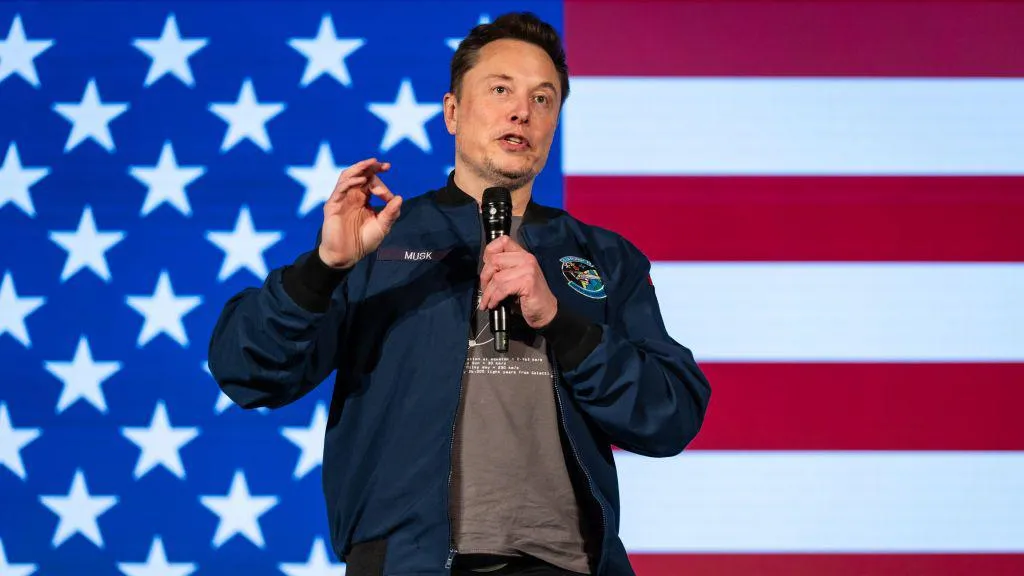Musk can continue with election cash giveaways for now, judge rules
3 min read

A Pennsylvania state judge has ruled that Elon Musk can proceed with his cash giveaways to registered voters, at least temporarily. The billionaire’s political group, America PAC, has been offering substantial cash prizes to voters in key swing states who sign a petition, a practice that U.S. officials suggest may violate electoral laws—a claim Musk denies.
The legal challenges began when Philadelphia District Attorney Lawrence Krasner filed a lawsuit against Musk, seeking to halt the $1 million giveaways. Krasner contended that the giveaways must be stopped immediately to avoid any potential impact on the upcoming presidential election.
During a hearing on Thursday, Judge Angelo Foglietta decided to pause the lawsuit while a federal court considers whether to take the case. If the federal court opts not to intervene, the lawsuit will revert back to state court. In a post on X (formerly Twitter), the platform owned by Musk, he expressed his satisfaction with the ruling, stating it was “American Justice FTW (for the win).”
It appears unlikely that the case will be resolved before the elections scheduled for November 5. Krasner’s legal team plans to pursue the matter in federal court, aiming to have it remanded back to state court, arguing that it involves significant state law issues. Notably, Musk did not attend the court hearing in Philadelphia.
Earlier this month, Musk announced his intention to randomly award $1 million daily to individuals in several battleground states, including Pennsylvania, Georgia, Nevada, Arizona, Wisconsin, Michigan, and North Carolina, leading up to Election Day. These states are crucial as they are expected to feature a tightly contested race between Trump and his Democratic opponent, Kamala Harris.
In the latest development, America PAC revealed another winner—Dacey from Fremont, North Carolina—who received a $1 million check. To qualify for the prize, participants must provide personal information such as their addresses and phone numbers, and they must sign a pledge affirming their support for the U.S. Constitution.
Krasner’s lawsuit claims that Musk is effectively running an illegal lottery. “America PAC and Musk are lulling Philadelphia citizens into giving up their personal identifying information and making a political pledge in exchange for a chance to win $1 million,” the lawsuit states. “That is a lottery. And it is indisputably an unlawful lottery.”
The lawsuit also alleges that Musk violated consumer protection laws by making “deceptive, vague, or misleading statements” that could confuse participants. However, Musk’s legal team argues that the lawsuit’s true aim is to prevent what they perceive as interference in the upcoming federal presidential election, disguising their claims as state law violations.
Complicating matters further, a day before the judge’s ruling, Krasner’s team requested heightened security for the hearing after Musk retweeted a derogatory post about Krasner, which sparked threats against him. The district attorney’s office noted in a legal filing that this action led to an overwhelming number of posts from Musk’s followers, many of which included antisemitic attacks against Krasner.
Prior to the filing of the lawsuit, Musk’s PAC was warned by the U.S. Justice Department that its lottery-style giveaways might breach federal election laws. Although under U.S. law, it is illegal to pay individuals to register to vote, legal experts suggest that whether Musk’s giveaways violate federal law is a complex and ambiguous issue.
If a court ultimately finds that Musk has broken the law, he could face penalties including a $10,000 fine and up to five years in prison. Musk has maintained that voters wishing to participate in the giveaways do not need to register as Republicans or even cast a vote.
As the election approaches, the implications of this case and the broader debate surrounding cash giveaways could influence electoral dynamics and raise important questions about the legality of such practices in the American political landscape.